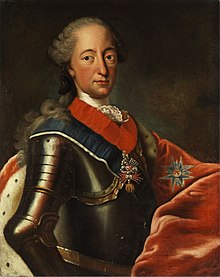Innviertel
The Innviertel is the northwestern quarter of Upper Austria and includes the districts Braunau am Inn, Ried im Innkreis and Schärding.
Since the formation of the political districts in 1868, the quarters in Upper Austria no longer have a legal basis and are purely regional names.
It is a fertile, densely populated, flat to hilly landscape that is part of the Alpine foothills and lies between the rivers Salzach, Inn, Danube and the Hausruck hills.
Major towns in Innviertel include the district capitals Braunau am Inn, Ried im Innkreis and Schärding as well as Mattighofen and Altheim.
Located within the Alpine foothills, the rural Innviertel is approximately 2,250 km2 (870 sq mi) in area and comprises the broad Inn valley, which is largely flat and fertile, and the adjacent undulating landscape in the east, which is rich in granite in the north and coal.
A number of Central European powers laid claim to parts of the inheritance, including, first and foremost, Austria with its demands for the cession of Lower Bavaria and the Upper Palatinate.
[3] Linguistically, despite the extensive adoption of Austrian standard vocabulary, the dialect characteristics of West Central Bavarian were retained in the Innviertel; which mainly consist of a large number of vocalization features typical of the region (e.g. the word milk, in the Innviertel referred to as Milli or Muich, is mostly known as Müch in the rest of Austria), has survived to this day (compare Bavarian language).
Nonetheless, up to the 20th century there were disputes between groups from Innviertel and so-called "Landlers" ("Landl" is a term for the Hausruckviertel or for Upper Austria in general) at the level of the young farmers' clubs (Innviertler Zeche).
A certain local rivalry has emerged in the last few years, even in institutional circles such as in the tourist sector, from the Grieskirchen district to the Innviertel and, further east, to the state capital of Linz.
It is primarily expressed in sporting competitions and political and public debates about the disadvantages of the Innviertel compared to the more central regions of Upper Austria, which at times dominate reporting in the local media.
Its Bavarian roots show in the local German dialect, Innviertlerisch, a Western Central Austro-Bavarian variant similar to the languages spoken in adjacent Lower Bavaria.
Both Adolf Hitler and the diplomat Egon Ranshofen-Wertheimer were born in the town of Braunau am Inn on the German border.







